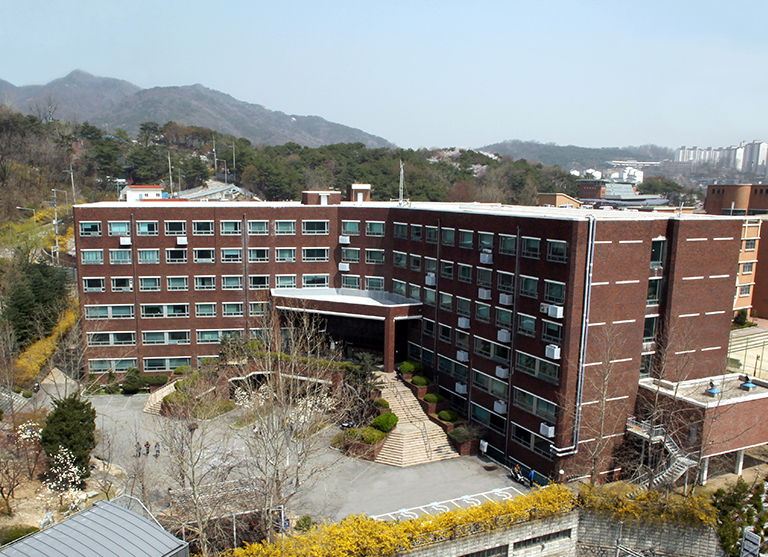
While other university design programs remained under their colleges of Fine Art, our professor stressed the importance of design in choosing the department name Faculty of Design in 1975 and then College of Design in 1980. This set Kookmin University's design program apart from all others. Our determined design educators built a college with a new curriculum and teaching method based upon student experience and motivation. Today, too, we support each student's creative ideas and experimental concepts with open minds. Consequently, we are especially known for our teaching know-how. All of these efforts have formed the strong identity the College of Design has today.
Department of Forestry, Environment, and Systems
The Department of Forestry, Environment, and Systems equips students with the knowledge and skills to tackle global challenges such as climate change, biodiversity loss, and land degradation. Our mission is to enhance the sustainability of both the Earth’s ecosystems and human societies through innovative, nature-centered solutions. We provide a rigorous curriculum grounded in scientific and system-based approaches, complemented by practical training in sustainable forest management, environmental policy, ecological restoration, and international cooperation. Students gain expertise in key areas including carbon sink management, natural disaster resilience, and ecological and environmental data analysis (AI, GIS/RS, and Python/R), as well as field-oriented green public service. By nurturing professionals who safeguard the health of people and nature, the department plays a leading role in advancing values and practices that contribute to a sustainable and prosperous future—both in Korea and around the world.

Department of Forest Products and Biotechnology
The Department of Forest Products and Biotechnology involves a of forest products and bioengineering technologies with the aim of extending support to the environment and mankind. As such, we aim to produce new experts in the fields of bio-energy, functional substances, and environment-friendly biomaterials (wood, paper). By using various microorganisms and regular organisms, we hope to create environment-friendly biomaterials that respond to the needs of the 21st century by focusing on low-carbon green growth. In particular, the Department of Forest Products and Biotechnology has been strengthening the application of biotechnology in the field of wood / paper-manufacturing industries to contribute to realizing a healthier and more environment-friendly bio-industry, which is being given more significance in consideration of the current changes in the environment, society, and the economy. The department program is centered on areas that place higher social demands on experts, such as environment-friendly wood construction and wood engineering, functional bio-substances and herbal medicine, bio-energy engineering, the use of new ingredients, and the preservation of paper sciences. In order to respond to the central goal, we are equipping our students with the foundational requirements of industries, in addition to the academic theories that they need to grasp. In this sense, our curriculum strengthens the experimental training of students, expands the courses requiring the collaboration of industry and academe and offers internships and on-site training in order to achieve a higher employment rate.

Department of Nano and Electronic Physics
The education and research goal of the Department of Nano and Electronic Physics is to explore quantum phenomena on the nanometer scale, to apply the principles of physics to electronic systems, and to cultivate the manpower needed in 21st century industry. The research and education is done through analyzing information from cutting-edge experiments and developing new methods to overcome the limitations of conventional methodologies on the nanometer scale. The department also focuses on theoretical and numerical studies of physical phenomena in the nanometer region. The educational program for 1st and 2nd year students is focused on providing basic understanding of both theoretical and experimental physics. For the 3rd and 4th year students, the department provides a team-oriented education program in conjunction with the department's graduate program.
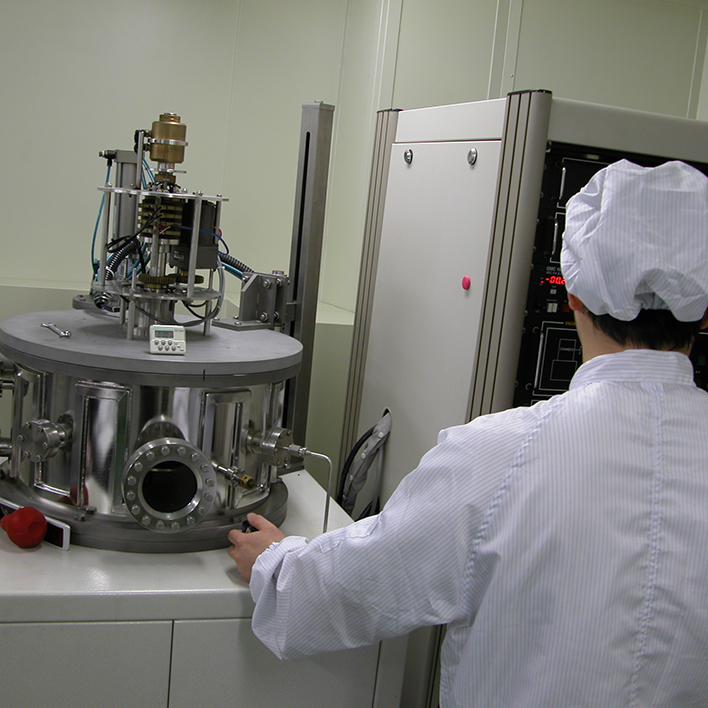
Department of Applied Chemistry
The Bio and Nano Chemistry major offers a full range of courses in the fields. The Department of Bio and Nano Chemistry has excellent laboratory facilities with the latest equipment, which will allow students to gain experience using the wide range of instrumental methods practiced in today's chemical institutes and industries. In addition to their academic interests, Bio and Nano Chemistry faculty members have active research programs. The link between teaching and research is vital in the continuously evolving scientific field. The Bio and Nano Chemistry major provides a great deal of flexibility and prepares students for a wide variety of career options. The required courses for the major can be completed in three years, leaving the final year open for advanced and independent work under the supervision of a professor.
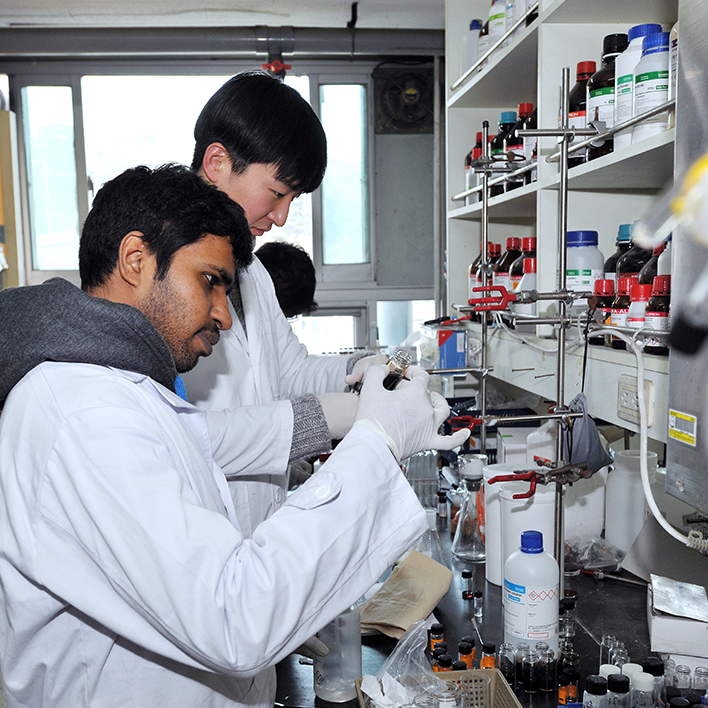
Department of Food and Nutrition
The Department of Foods and Nutrition offers a specialized program in clinical nutrition and food biotechnology. Students will develop a strong background in general biological sciences at the lower division level and practical skills in the areas of clinical nutrition and food biotechnology as their special focus on the upper division level. Graduates can apply for the certificates of a nutritionist, a food-processing engineer, and a biotechnology engineer. Graduates also have attractive job opportunities as nutritionists in hospitals, schools, and industries, as well as researchers in the food industry. In addition, graduates can apply to become patent attorneys after co-majoring in the interdisciplinary program of industrial rights.
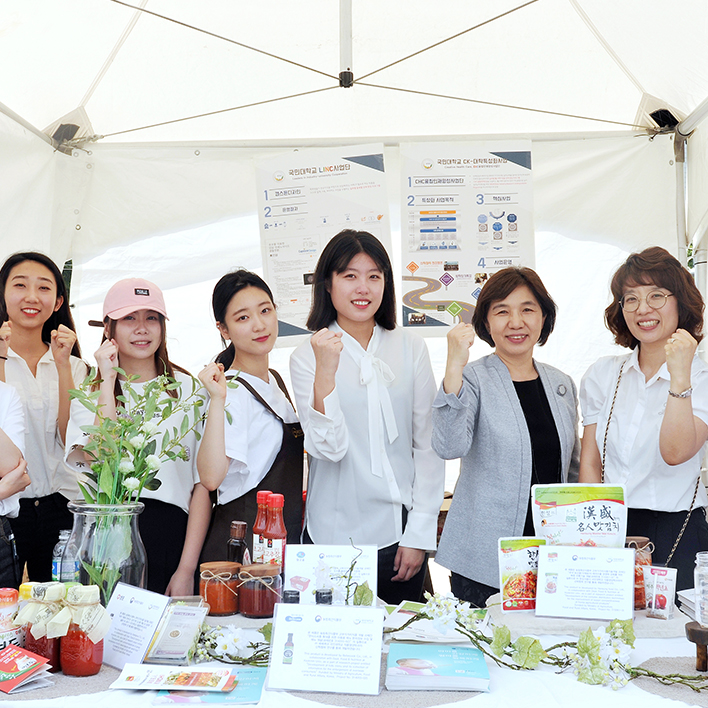
Department of Information Security, Cryptology, and Mathematics
The Department of Information Security, Cryptology, and Mathematics offers systematic education in mathematical cryptology through diverse courses that have been developed to produce experts in information security. It is the only university department in Korea that combines basic mathematics and computer engineering courses with intensive major courses, such as side channel analysis, financial security, and digital forensics, in a systematic and organic way.
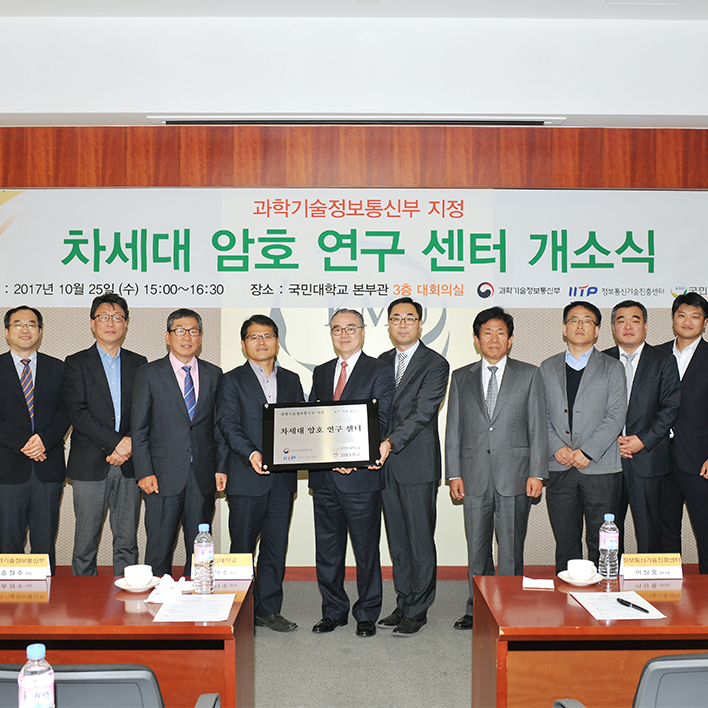
Department of Integrative Biotechnology
The Department of Integrative Biotechnology trains professionals who possess convergent thinking and practical skills in cutting-edge fields. Our comprehensive curriculum integrates advanced biotechnology and covers the exploration, development, production, and application of functional biomaterials for pharmaceuticals, food, beauty, and industrial purposes. In addition, the Department collaborates with leading research groups at key national research institutes and prestigious universities abroad through joint education and research exchange programs. We also participate in various programs aligned with the nation's sustainable growth policy. Through these multidisciplinary and international education and research initiatives, the Department prepares forward-thinking professionals with global and specialized competencies. Our graduates are becoming essential personnel for biotechnology companies, government-funded research institutes, and government ministries, and we are committed to fostering creative biotechnology startups and supporting aspiring entrepreneurs.


















